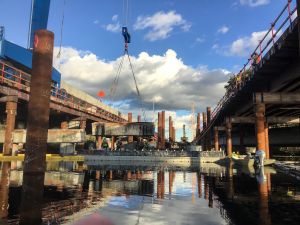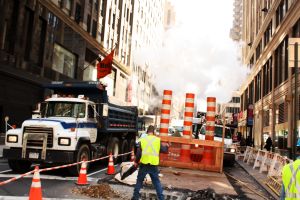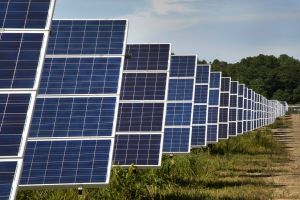While partisan politics have turned most political discussions into a stalemate, both sides have proposed policies to try and fix the US’s crumbling infrastructure. However, while many former presidents, Such as Barack Obama and Donald Trump have proposed bills and even campaigned on fixing infrastructure, these plans have almost never come to fruition. As a result, America’s antiquated power lines, ancient bridges and pothole-littered roads have remained mostly unprepared.
However, this could all change as President Biden has proposed a $3 trillion bill in late March. This piece of legislature focuses on revitalizing the infrastructure, education system and combating climate change in an attempt to boost the economy stricken by the coronavirus pandemic. If passed, this bill would integrate infrastructure repairs with tackling climate change by investing in renewable energy. This will also improve the economy and increase jobs as renewable plants and farms (such as wind turbines or solar farms) would need to be built.

Dr. Eric Malm, former professor of economics and business at Cabrini, thinks that it is economically smart to repair a country’s infrastructure to boost the economy. He says that “many new industries, such as the electric car industry, need an updated grid to succeed.”
However, Malm warns that while infrastructure repairs are a bipartisan topic, Democrats and Republicans have different philosophies when discussing this issue. He says that Republicans are more likely to “Oppose large amounts of spending from the government and prefer if corporations would pay for infrastructure repair. Democrats,” He adds, “want to develop new technologies and infrastructure, which they believe takes leadership (from the government).” Because of this clash of ideologies and because officials may have issues with other issues the bill targets, Malm doesn’t think that it can gather enough support from Republicans to pass.
Aware that this bill is unlikely to pass, Biden released a new proposal on March 31 to allot $2 trillion to repair infrastructure throughout the nation. This proposal aims to repair bridges, over 20,000 miles of roads, railways and replace lead plumbing. Like the previous bill, this new legislature will also try and combat climate change by investing in alternative energy sources such as solar and using more durable materials in the restoration and construction of streets and bridges. If passed, this ambitious goal will be carried out over eight years and will be funded by a tax raise for corporations and other wealthy individuals that will take 15 years to pay off. Jim Tankersley from the New York Times says “Biden would raise the corporate tax rate to 28 percent from 21 percent, partly reversing a cut signed into law by President Donald Trump.”

As expected, this plan has its critics. Many Republicans and members of the US Chamber of Commerce are opposed to this proposal. Ed Mortimer, vice president of transportation and infrastructure for the chamber agrees with these sentiments. In an article by the Times, he said “raising corporate taxes, and others, is kind of a nonstarter for Republicans. It’s kind of a nonstarter for us, too.” Corporations are opposed to this as well since they don’t want to pay extra money in taxes.
There are many arguments against pro-environment infrastructure bills such as the ones Biden has promoted. One of the most common arguments is pro-environment policies hurt the economy by trying to limit the financial juggernauts of the fossil fuel and coal industries. However, Malm says that these industries will eventually become obsolete, so investing in renewable energy will be helpful for future-proofing our infrastructure. Additionally, in his latest proposal, Biden plans to set aside $16 billion to help fossil fuel workers into more environmentally-friendly jobs.

Can Biden finally be the president to repair America’s crumbling infrastructure? Only time will tell if these proposals are successful.


